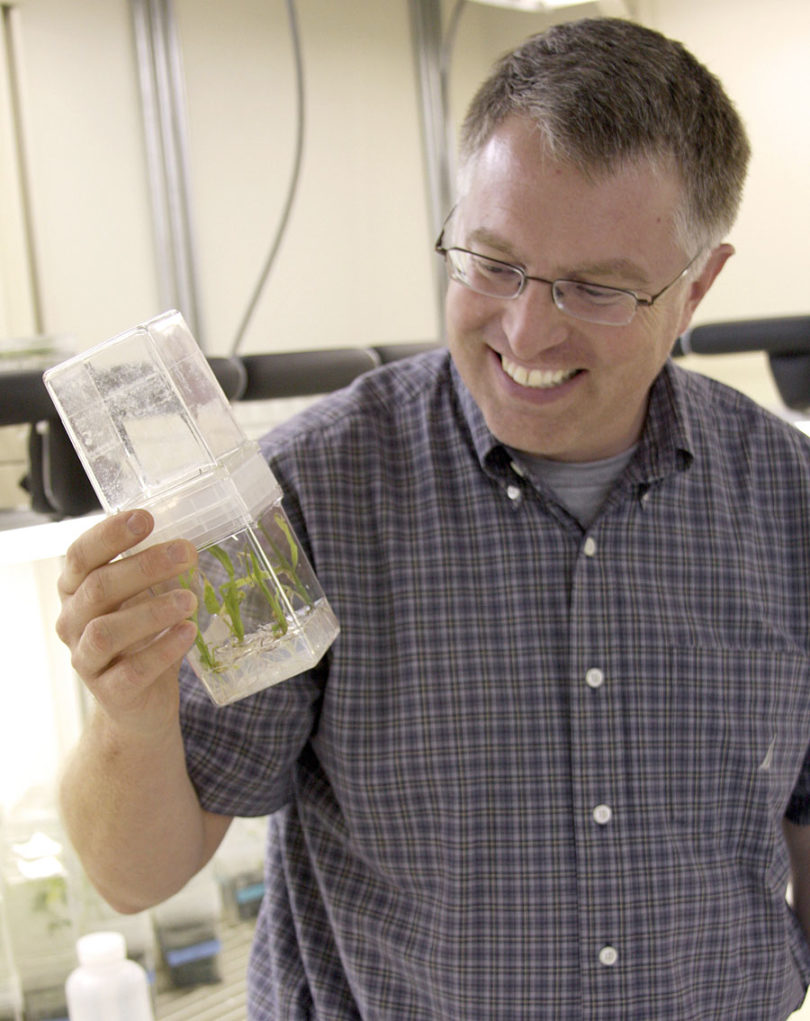UGA plant breeders are taking genomic research from the laboratory and translating it for widespread use in plant breeding programs, particularly to develop better disease-resistant agricultural crops.
“Over the last 10 years there has been a huge investment in basic genomics research,” said Charles Brummer, professor and plant breeder in the College of Agricultural and Environmental Sciences. “Now we are trying to move the science to practical plant breeding programs and make progress in the real world.”
A detailed DNA or genetic map of a plant helps breeders select favorable traits from it to produce plants for better food production, flavor or disease resistance.
“Understanding how the DNA or genes on individual chromosomes affect traits in a plant is complex, but we are making great advances in our ability to use genetic data to help with selection,” Brummer said.
Using a $500,000 grant from the U.S. Department of Agriculture’s Agricultural and Food Research Initiative, the team will apply marker-assisted selection to soybean, peanut and watermelon breeding programs and create an online plant breeding textbook with a detailed module on translational breeding. The book will be freely available around the world and be used in introductory and advanced plant breeding courses.
“Our goal is to make better cultivars and better plants and teach others how to do it as well,” Brummer said.
Brummer will work with other plant breeders in the UGA Institute of Plant Breeding, Genetics and Genomics to do the work, including Roger Boerma, Steven Knapp, Cecilia McGregor and Peggy Ozias-Akins. Michael Orey from the College of Education and Maria Monteros of the Samuel R. Nobel Foundation also will collaborate.







